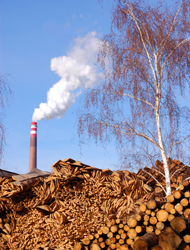Turning Serbian wood into green fuel
The advent of biomass is a promising greener alternative to fossil fuel, as it is made from biomaterial such as wood. This sustainable energy source can feed fuel-dependent industries while invigorating the economy at the same time. The EU-funded 'Strengthening of research capacity for poplar and willow multipurpose plantation growing in Serbia' (Strepow) project aims to strengthen research behind growing poplar and willow trees in Serbia for different purposes. Its goal is to support the Institute of Lowland Forestry and Environment, as well as researchers, to encourage participation in research activities at EU level. Strepow is hoping to transform the institute into a centre of excellence in the Western Balkans to support poplar and willow plantations in Serbia so they could produce biomass for energy. The project also wants to remedy contaminated sites by planting trees and creating a green industry. This will be achieved through exchange of scientists and other collaboration activities, as well as by employing new researchers and helping with new laboratory equipment. Sustainable partnerships and networking have also been established with expert research centres in Italy and Hungary to support the project's objectives. This has included training sessions and joint in-depth research activities in both countries. The study visit to Hungary in April 2010 focused on fast-growing tree species such as hybrid poplars for wood and for energy purposes. In addition, the project employed two junior researchers to address production of poplar and willow biomass for energy in short-rotation plantations and environmental application of poplar and willow. The dissemination of Strepow's goals, objectives and results involved television coverage, presentations, training sessions and other activities. The project is set to empower the Institute of Lowland Forestry and Environment by reinforcing its research capacities, accelerating sustainable partnerships with European centres and mobilising human potential. This will support the exploitation of research results to produce biomass, promote green industry across the region and help the economy in sustainable ways.



